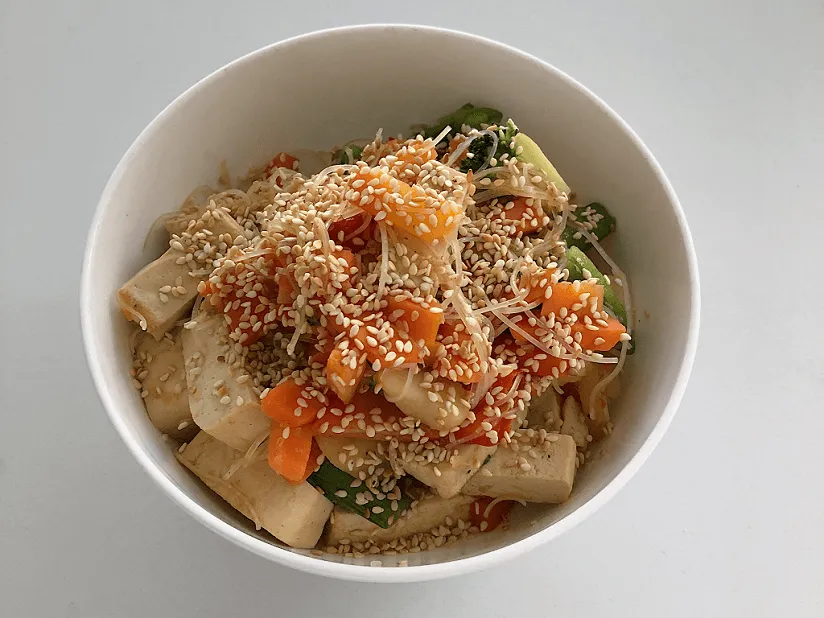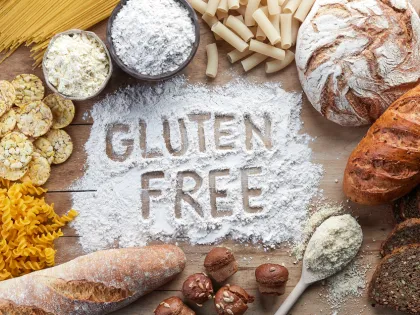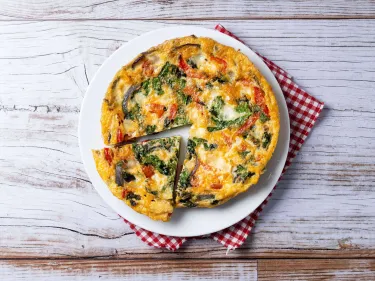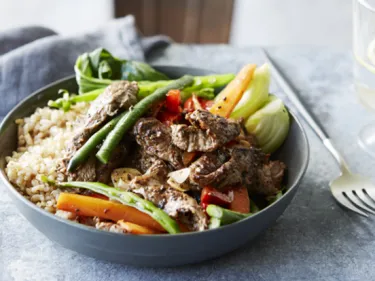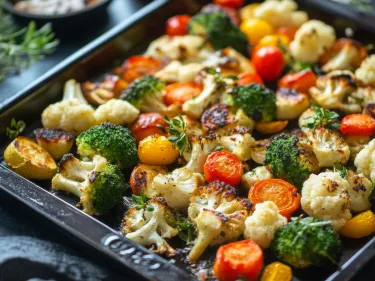Serves = 2
- 1 tablespoon oyster sauce
- 1.5 tablespoons hoisin sauce
- 2 tablespoons water
- 65g rice vermicelli noodles
- 300g firm tofu, cut into 2cm long batons, about the width of your finger
- 1 teaspoon olive oil
- 3 cups frozen stir-fry vegetables
- 2 cloves garlic, crush in a garlic crusher or chop finely



